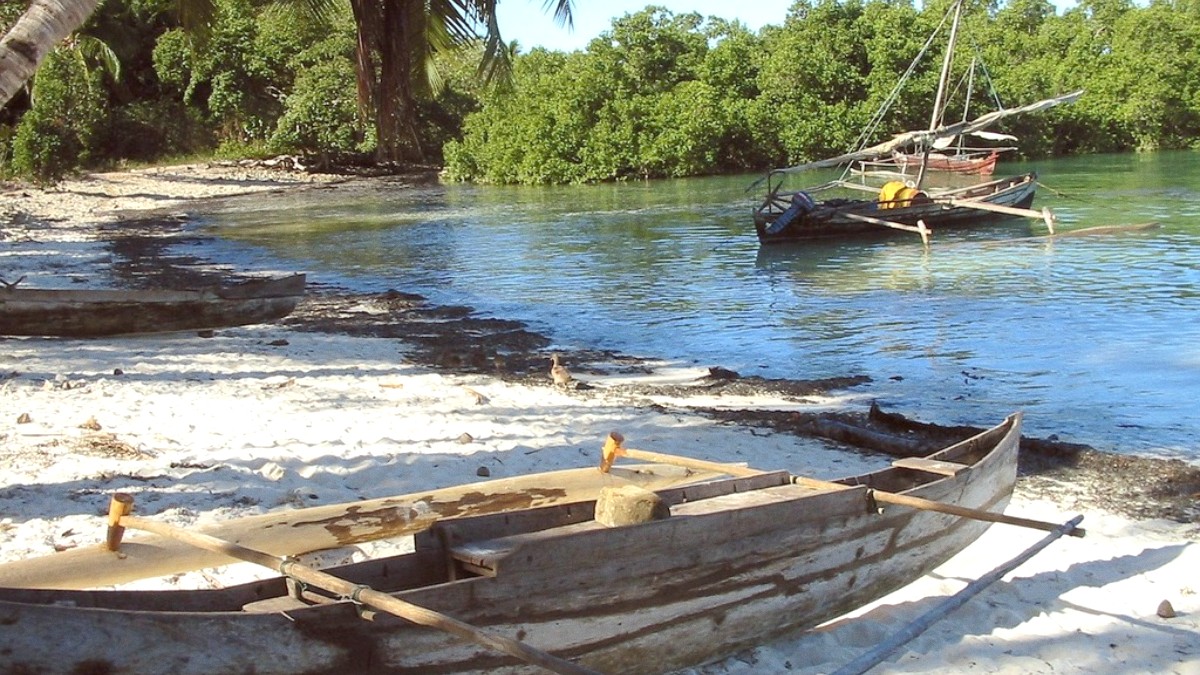
Several airlines link Kiribati to the outside world, though direct global connections are not available. All international journeys to Kiribati mean connecting through other Pacific island nations, with Fiji acting as the main and most reliable transit point.
Airport facilities at both international gateways remain basic. Bonriki (TRW) is a small airport with limited facilities. Cassidy (CXI) features even more basic facilities.
Taxis are available outside Bonriki terminal. Negotiate the fare before starting your journey (AUD 15-30+).
Public buses run along South Tarawa's main road, but may not go directly to the airport terminal and can be crowded.
Many hotels offer airport pickup. This is often the most reliable option.
Inter-island ferries cater mainly to locals. Services are infrequent and often unreliable. Schedules are not widely published.
Tarawa has a main port (Betio). Kiritimati features a port (Poland) mainly used for cargo and fishing vessels. Cruise ship calls are rare.
Kiribati consists of low-lying atolls with no significant rivers. Therefore, river transportation is not an option.
Prepare for your departure by understanding exit procedures and timings. An airport departure tax is typically part of your international flight ticket price.
Facilities at both Bonriki (TRW) and Cassidy (CXI) airports remain very basic in the departure areas.
Purchase any last-minute snacks, drinks, or other supplies before arriving at the airport. This prevents hunger or thirst during delays.
Flight delays or cancellations can happen. If you experience significant disruptions, you might be eligible for compensation.
Public transportation in Kiribati mainly consists of a bus system in South Tarawa. These buses are typically privately owned minibuses or vans. They offer an economical and authentic way to experience local travel.
Taxis offer a more direct and comfortable, though more expensive, option. Ride-sharing apps like Uber or Lyft do not operate in Kiribati.
Car rental is available on South Tarawa and Kiritimati, typically through local companies. DiscoverCars.com offers options.
Availability is limited, mostly via informal rentals. Helmets may not be legally needed, but their use is strongly advised.
No formal bicycle sharing programs exist. Some guesthouses or local shops offer bicycle rental.
South Tarawa features a main road, but sidewalks are limited or non-existent. Walking is pleasant along beaches (mind tides) and in quieter outer island villages.
No dedicated bicycle lanes exist. Cyclists share the road with vehicles. Be visible, use lights at night, and watch for traffic and road hazards.
Formal tour buses or hop-on-hop-off services do not operate. Tours are typically arranged privately with a driver or guide in a car or van.
Informal boat transport can be arranged between islands. This is not a scheduled service but is negotiated directly with local boat owners.
Infrastructure for travelers with mobility challenges stays extremely limited. Buildings, transport, and public spaces are generally not wheelchair accessible.